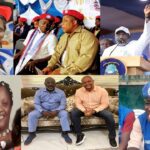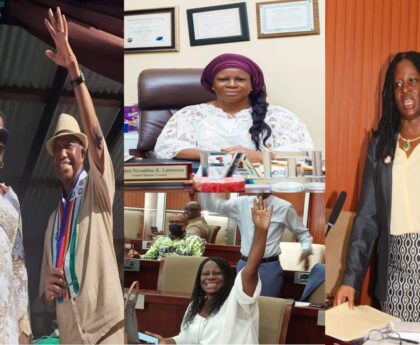The recent electoral defeat of President George Weah in Liberia has prompted introspection within the ranks of his government officials, who are now openly expressing their belief that the President played a significant role in his own downfall. Claims are emerging that George Weah’s reluctance to heed advice, coupled with a penchant for praise stemming from his past celebrity lifestyle, contributed to a series of self-inflicted setbacks that culminated in his electoral defeat.
One of the recurring criticisms directed at President George Weah is his purported resistance to taking counsel from his advisors. Officials within the Weah-led government contend that valuable insights and strategic recommendations were often met with reluctance or dismissed outright. The consequences of sidelining informed advice became apparent during the election campaign, as certain key decisions failed to resonate with the electorate.
George Weah’s background as a celebrated footballer and global personality may have played a role in shaping his leadership style. Accustomed to a life in the limelight and the adulation that came with it, some officials argue that George Weah’s predisposition for praise affected his receptiveness to constructive criticism. In a political landscape where adaptability and responsiveness are crucial, a resistance to diverse perspectives can lead to strategic missteps.
Moreover, the government’s claim that George Weah’s love for praise influenced decision-making sheds light on the importance of a balanced and critical approach to governance. Political leaders, regardless of their past achievements, must be open to feedback and dissenting opinions to navigate the complex challenges of governance successfully.
The assertion that President George Weah’s celebrity past may have influenced his leadership approach highlights a broader issue in contemporary politics— the challenge of transitioning from a public figure admired for individual accomplishments to a leader accountable for the collective well-being of a nation. The dynamics of celebrity and political leadership demand different skill sets, and the failure to recognize this shift may have contributed to the Weah-led government’s missteps.
As Liberia reflects on this electoral outcome, the narrative emerging from government officials underscores the importance of a leadership style that values diversity of thought and is open to constructive criticism. The electoral defeat of President George Weah serves as a reminder that political success demands not only charisma and popularity but also a willingness to listen, learn, and adapt in the face of evolving challenges.




